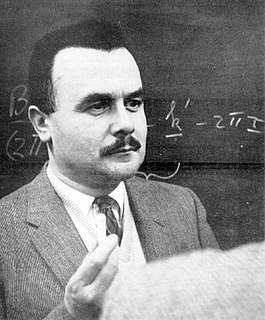A Quote by John Searle
Nowadays nobody bothers, and it is considered in slightly bad taste to even raise the question of God's existence. Matters of religion are like matters of sexual preference: they are not discussed in public, and even the abstract questions are discussed only by bores.
Related Quotes
Sometimes people don't rehearse at all, but you might have had a chance to rehearse for a few days, or even more than that. Then in the moment when the camera's running is the only time it matters. So whatever you've discussed or thought about or discussed with the director, the other actors, hopefully there's a part of the experience that you've left open so that only in that moment the camera catches it. That's of course the hardest thing to do because everything is planned and you have thought about it in advance.
Take a look at the current debates in Washington, and of course, everything in the media. Only one issue is discussed: the deficit - the least significant issue, but the most significant issue for the banks. The big problem, joblessness, is barely discussed, even though that's what the public wants, as polls clearly show. That's even what the business press supports, but the financial institutions are so powerful that the only issue is the deficit, and this runs right through the intellectual culture.
Television from its inception had the number one goal to alienate as few people as possible. That's why if you look at 1950s, 1960s American sitcoms, the characters don't live any place in particular, religion is never discussed, politics is never discussed, you never really know what anyone's job is; nothing that could make these people seem different from you is ever discussed.
For strictly scientific or technological purposes all this is irrelevant. On a pragmatic view, as on a religious view, theory and concepts are held in faith. On the pragmatic view the only thing that matters is that the theory is efficacious, that it 'works' and that the necessary preliminaries and side issues do not cost too much in time and effort. Beyond that, theory and concepts go to constitute a language in which the scientistic matters at issue can be formulated and discussed.
We often value the exterior and superficial aspect of things more than their inner reality. Bad manners taint everything even justice and reason. The 'how' of things matters most, and even the most disagreeable matters can be sweetened and gilded over with the proper appearance. Such is the bias and the weakness of the human mind.
If you could map out a human brain, an open question is, if you simulated it, would it be you? Now, as we discussed earlier, we don't have a great definition or even a good technological handle to know whether something is conscious or not just by looking at it, so there's that aspect that we're not ready to answer, I would argue. But it raises very interesting questions about the nature of identity.
To journey for the sake of saving our own lives is little by little to cease to live in any sense that really matters, even to ourselves, because it is only by journeying for the world's sake - even when the world bores and sickens and scares you half to death - that little by little we start to come alive.









































